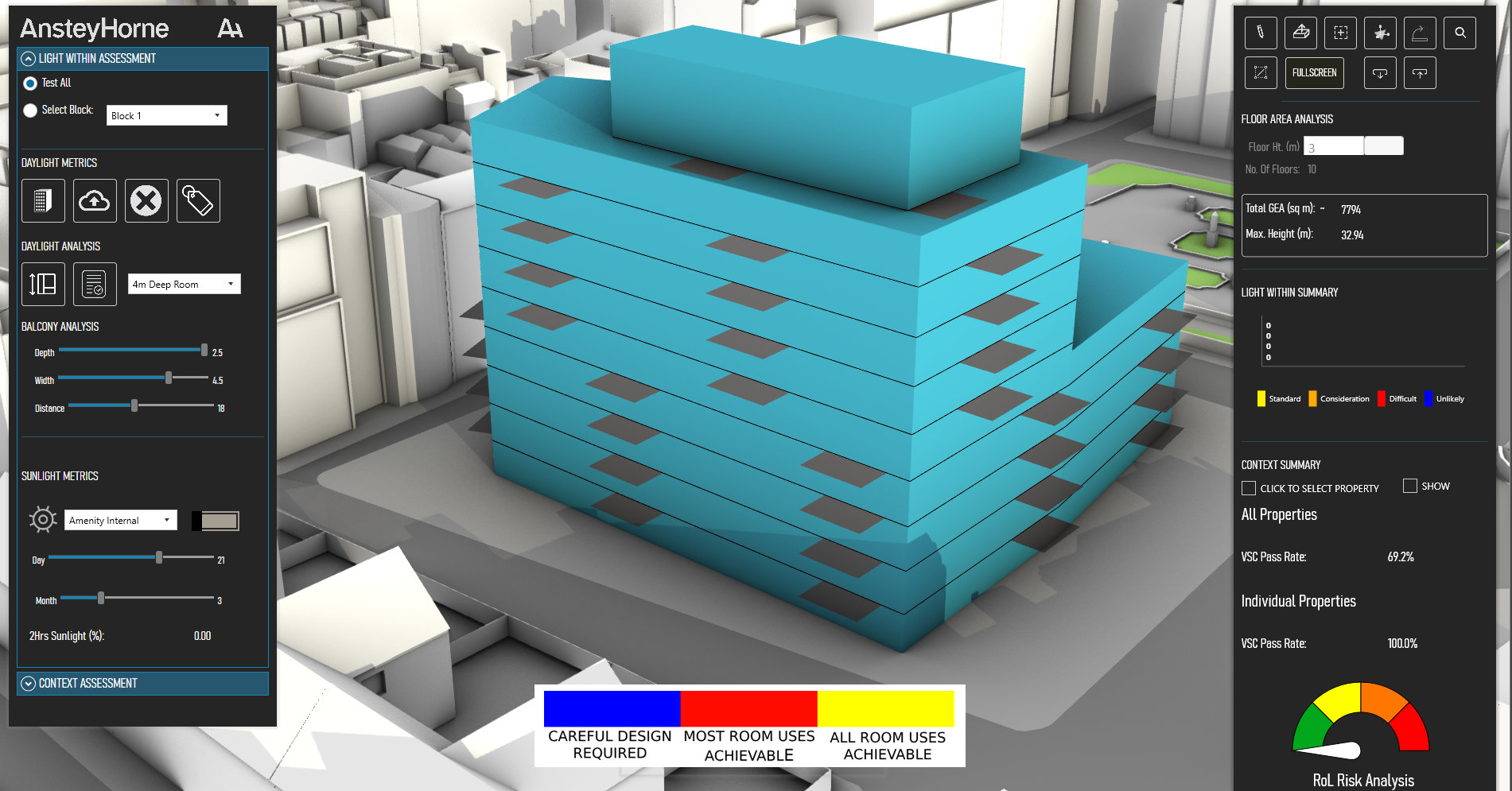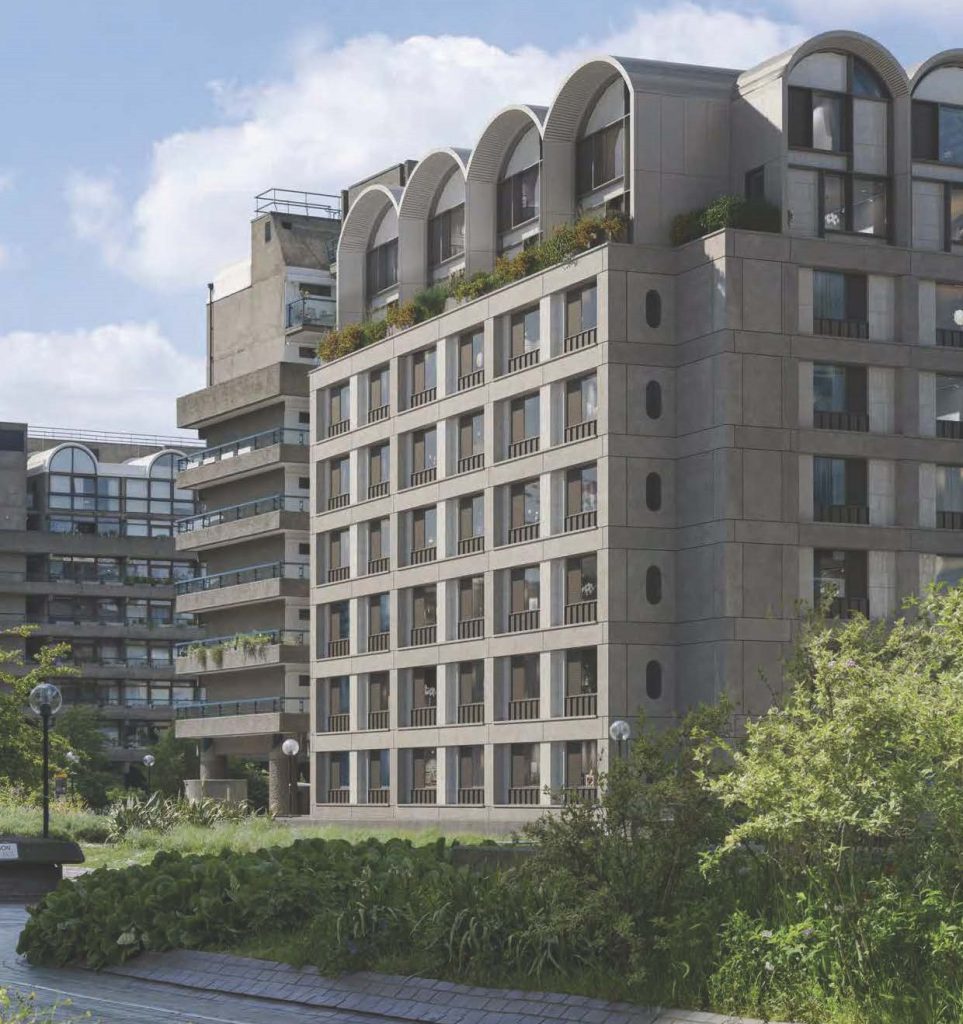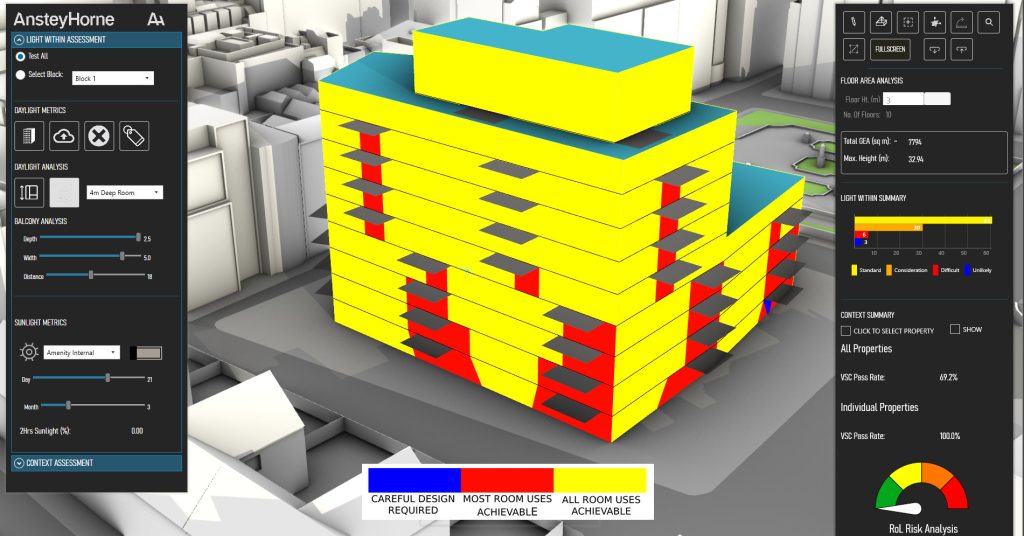
Daylight Design: Enhancing Co-Living
Innovative co-living developments are increasingly addressing the critical need for affordable living solutions while emphasizing the importance of Daylight Design to enhance the quality of life for residents.
As urban centers like London face ongoing challenges related to housing shortages and rising urban density, co-living developments are emerging as a vital solution.
In the context of co-living, the role of Daylight Design cannot be overstated. Traditionally, co-living spaces have been evaluated based on BRE (Building Research Establishment) guidelines, which primarily focus on daylight and sunlight access.
Daylight Design for Communal Spaces
However, at Anstey Horne, we strongly advocate for prioritizing Daylight Design in communal spaces. These areas are where residents spend a significant portion of their time. Thoughtful Daylight Design in these spaces can transform the living experience, making it more vibrant, comfortable, and conducive to community living.
As cities push for higher housing density, co-living developments offer a transformative approach to urban living. These developments combine convenience and affordability while fostering a strong sense of community—an aspect often overlooked in traditional urban projects.
Typically, co-living spaces include private studio bedrooms alongside communal areas such as shared kitchens, living rooms, and workspaces. Shared amenities like gyms and cinemas further enhance the appeal, creating a balanced environment between privacy and community engagement. In high-cost cities like London, the cost-effectiveness of co-living, bolstered by shared amenities, makes it an attractive option for many residents.
Co-living developments cater to a diverse demographic, including students, young professionals, families, and retirees. These spaces are designed with a dual focus on affordability and sustainability, optimizing shared resources and reducing environmental impact.
By integrating Daylight Design into these developments, they minimize their physical footprint and improve operational efficiency, contributing to a more sustainable urban environment.

Co Living Development Case Study
Anstey Horne has played a crucial role in advising on various co-living projects in London, including the 45 Beech Street development for HUB Residential.
This project, which involves converting and extending an existing office building near the Barbican Centre, exemplifies the potential of co-living conversions enhanced by strategic Daylight Design.
Central urban locations, adaptability, and the sustainability benefits of repurposing existing structures make buildings like 45 Beech Street ideal for co-living developments.

Daylight Design Algorithm
To maximize daylight in these developments, Anstey Horne has developed a rapid testing tool that evaluates light performance in the early design stages.
By utilizing block massing before finalizing facades or internal layouts, we employ bespoke algorithms to strategically position balconies and optimize room placements. This approach is particularly vital in dense urban environments. In such locations natural light can be challenging to achieve, making Daylight Design an essential component of successful co-living spaces.
Contact
For expert advice on how we assess daylight & sunlight in co-living spaces, please get in touch. Our innovative design strategies and customized algorithms are critical in creating vibrant, well-lit living environments. Our advice not only enhances quality of life but also contribute to the sustainability of urban developments.
Daylight & Sunlight Services
Detailed Daylight & Sunlight Assessments
Masterplanning & Site Optimisation
Maximum Development Envelopes & Optimisation
Façade Analysis & Optimisation
Internal Daylight & Sunlight Assessment
Environmental Impact Assessment (EIA)
Transient Overshadowing
Hours in Sun for Amenity Space
Climate Based Assessment
Tree Impact Assessments
Radiance Studies
Light Pollution
Expert Witness
Technical adviser to Local Planning Authorities
For further advice on Daylight & Sunlight for planning, please call our Daylight & Sunlight Enquiry Line on 020 4534 3138.
If you’d like us to call you, please fill in our Contact Us form and we will call you back.
Link: Contact Us
Team members shown:
- Gracie Irvine
- Matthew Grant
- Rebecca Chapman
- Dan Fitzpatrick

